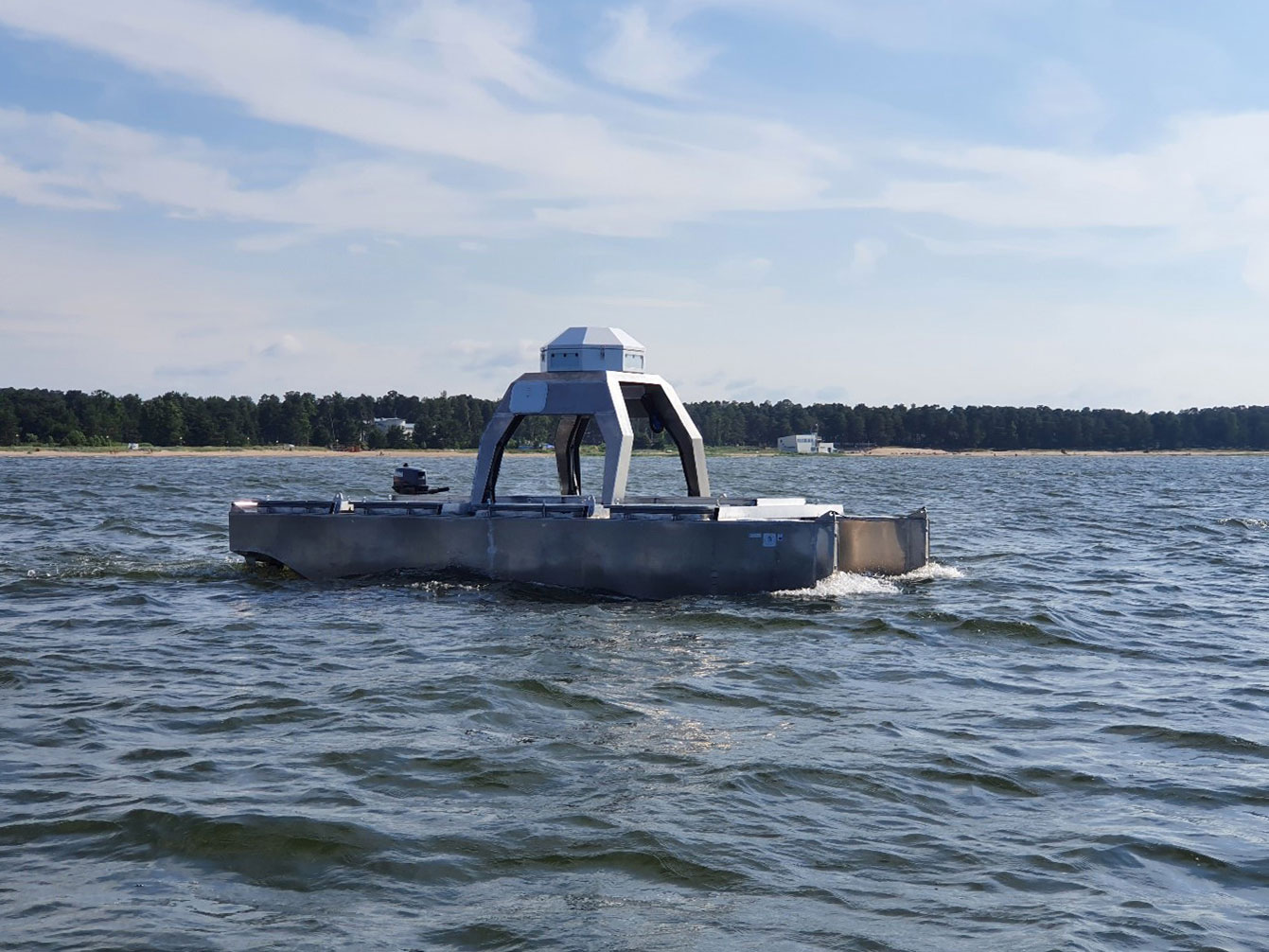
The aim of this project is to create an autonomous survey vessel that significantly reduces the need for large survey vessels.
Ship-based surveys are important in assessing and managing fish stocks, but they can be time-consuming and expensive. This project led by the Estonian Marine Institute at the University of Tartu aimed to transfer some of the survey work to small, automated vessels.
Conventional surveys are typically done from large vessels that need large crews and burn a lot of fuel. There are two standard survey methods: echo sounders (sonar) and trawl sampling. The project team believed that the sonar sampling could be done entirely from smaller vessels, since the sonar itself weighs less than 100 kg and is very reliable.
A typical day’s surveying involves 10–12 hours of sonar recording and 3–5 hours of trawling. With a small vessel conducting the sonar recording, the large vessel could therefore spend around 25% less time at sea, with corresponding savings in fuel and hence CO2.
Subcontractors who specialise in boatbuilding helped to develop a prototype autonomous vessel just over 6 m long. It has a hybrid diesel-electric propulsion system, and its range can easily be extended by adding a larger fuel tank. As batteries and hydrogen technology advance, the aim is to remove the diesel generator in the future.
- Project locations
- Estonia
- Overall budget
- €295 428
- EU contribution
- €221 57175% of the overall budget
- Project website
- Eesti mereinstituut
Results
The autonomous vessel is economical and needs no crew on board. It can operate from anywhere with good internet connectivity. The main benefits are increased safety and significantly reduced fuel costs; the savings could be re-allocated to collect more data and hence improve assessments of fish stocks.
The current estimated range of the vessel is 180 nautical miles at a working speed of 5 knots, carrying up to 400 kg of instruments.
Contact
Elor Sepp
- Name
- Elor Sepp
- Organisation
- University of Tartu
- elor [dot] sepp
 ut [dot] ee
ut [dot] ee
